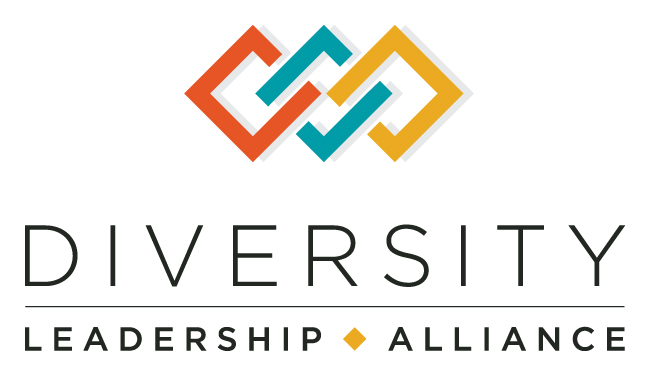Professional development programs have become increasingly vital in today’s dynamic business landscape. Among the emerging trends, Diversity, Equity, and Inclusion (DEI) initiatives have taken center stage. As organizations aim to build more inclusive, equitable, and diverse workplaces, professional development programs are evolving to prioritize DEI as a cornerstone of their training efforts.
This blog will explore the latest trends in professional development with a special focus on DEI, how organizations are adapting, and why such programs are pivotal in shaping the future of work. It will also highlight the role of the Diversity Leadership Alliance (DLA) and how businesses can collaborate with trusted brands to empower their DEI strategies.
The Importance of DEI in Professional Development
DEI has transformed from being a compliance checkbox to a strategic necessity. Organizations with diverse workforces are 35% more likely to outperform their competitors, according to research by McKinsey. Yet, achieving diversity is only half the battle; fostering an equitable and inclusive environment is where professional development programs play a critical role.
Professional development focused on DEI creates:
- Cultural Competence: Employees learn to appreciate and collaborate across cultural, racial, and gender differences.
- Equitable Opportunities: Through targeted training, organizations can identify and dismantle systemic barriers to employee growth.
- Better Problem-Solving: Diverse teams are proven to solve problems faster, thanks to varied perspectives.
- Improved Employee Retention: Employees who feel valued and included are less likely to leave the organization.
If you’re looking to deepen your understanding of how DEI impacts professional development, Diversity Leadership Alliance offers rich resources and networking opportunities to help leaders make informed decisions. Learn more about their conferences here.
Emerging Trends in DEI-Centric Professional Development Programs
1. Customized Learning Experiences
Gone are the days of one-size-fits-all training. Companies now emphasize personalized learning journeys that cater to diverse employee needs. DEI-specific customization includes:
- Bias Training Modules: Tailored to help employees recognize unconscious biases.
- Cultural Awareness Workshops: Focused on region-specific diversity challenges.
- Inclusive Leadership Training: Designed for managers to cultivate inclusive team environments.
2. Technology-Driven DEI Training
The rise of e-learning platforms, virtual reality (VR), and artificial intelligence (AI) is revolutionizing professional development. VR simulations allow employees to experience real-life scenarios involving workplace biases or microaggressions, fostering empathy.
Moreover, AI can personalize training recommendations, ensuring employees receive relevant DEI content based on their role, performance, and feedback.
3. Youth-Focused Initiatives
To cultivate future-ready workplaces, organizations are investing in youth DEI education. Programs targeting high school and college students aim to build a pipeline of culturally aware professionals. For example, Diversity Leadership Alliance’s youth initiatives are setting a benchmark by empowering young leaders with DEI-focused learning opportunities. Explore their youth programs here.
4. Accountability Metrics in DEI Training
Organizations are now quantifying the impact of DEI training. Metrics such as diversity in leadership roles, employee satisfaction surveys, and promotion rates are being closely monitored. Tools like dashboards and analytics are making it easier for HR teams to track DEI progress.
5. Intersectionality in Training Programs
Modern DEI programs focus on intersectionality—acknowledging how overlapping identities (race, gender, class, etc.) affect workplace experiences. Employees are encouraged to consider how different forms of privilege and oppression interact, leading to more inclusive policies and practices.
How DLA Integrates DEI into Business Practices
At DLA, we believe diversity is a strength. As a leading provider of innovative leadership solutions, we actively champion inclusive business practices. Here’s how we support organizations in their DEI journey:
- Custom Solutions for Diverse Needs: Our products cater to industries across the spectrum, ensuring accessibility and usability for all.
- Collaborative Partnerships: We work with organizations like the Diversity Leadership Alliance to promote equitable growth opportunities.
- Sustainable Practices: As part of our corporate responsibility, we prioritize sustainable manufacturing, ensuring environmental equity for future generations.
Key Strategies for Implementing DEI in Professional Development
Implementing DEI effectively in professional development requires a combination of strategic planning, leadership support, and consistent execution. Below is an expanded exploration of key strategies:

1. Leadership Buy-In and Advocacy
Leaders set the tone for an organization’s culture. For DEI initiatives to succeed, leadership must not only support but actively advocate for these efforts. Key steps include:
- DEI Training for Executives: Leaders should undergo intensive DEI training to understand its importance and nuances. Training can focus on inclusive decision-making, unconscious bias mitigation, and fostering equitable policies.
- Public Commitments to DEI: Leaders should communicate their commitment to DEI through company-wide memos, events, or participating in initiatives like Diversity Leadership Alliance’s conferences. This creates accountability and motivates teams to follow suit.
2. Employee-Led DEI Committees
Organizations are increasingly empowering employees to take an active role in shaping DEI policies and programs. These committees serve as the bridge between leadership and the broader workforce. Effective practices include:
- Task Forces for Specific Initiatives: Create sub-committees focusing on recruitment diversity, accessibility improvements, or cultural events.
- Feedback Loops: Use employee input to identify gaps in current DEI efforts, ensuring programs are relevant and impactful.
3. Collaboration with External DEI Experts
While internal committees are essential, partnering with experienced DEI organizations adds depth to your strategy. Collaborations can include:
- Custom Training Sessions: External consultants can design workshops tailored to your organization’s specific DEI challenges.
- Access to Best Practices: External partners like the Diversity Leadership Alliance provide insights into what’s working for other organizations, offering resources and tools to drive success. Learn how to participate here.
4. Inclusive Policy Development
For professional development programs to resonate, they must align with broader organizational policies. Consider these policy improvements:
- Equitable Career Pathways: Ensure promotions and growth opportunities are accessible to underrepresented groups by setting clear, bias-free criteria.
- Flexible Work Models: Accommodate diverse needs, including remote work options, which can be particularly beneficial for individuals with disabilities or caregiving responsibilities.
- Diverse Hiring Practices: Use structured interviews and blind resume screenings to reduce bias in the recruitment process.
5. Continuous Feedback and Improvement
DEI is an ongoing journey. Organizations must evaluate their professional development programs regularly to ensure effectiveness. Tactics include:
- Surveys and Focus Groups: Collect anonymous employee feedback to gauge the impact of training sessions and identify areas for improvement.
- Metrics for Success: Use quantifiable goals such as diversity in promotions, improved employee engagement scores, or reduced turnover among minority groups.
Benefits of DEI-Centric Professional Development (Expanded)
Investing in DEI-focused professional development programs yields significant advantages for organizations and their employees. Here’s an expanded look at the key benefits:
1. Enhanced Creativity and Innovation
Diverse teams foster innovation by bringing a variety of perspectives, experiences, and problem-solving approaches to the table. Research shows that organizations with higher diversity levels are more likely to develop groundbreaking ideas and products.
- Example: Teams trained in DEI are better equipped to understand diverse customer bases, enabling businesses to create inclusive products and services that resonate with a broader audience.
2. Stronger Employer Branding
A robust DEI strategy enhances your company’s reputation as an inclusive and equitable workplace. This makes your organization more attractive to top talent, particularly Millennials and Gen Z workers who prioritize diversity when choosing employers.
- Case Study: Companies known for DEI leadership, such as those involved in Diversity Leadership Alliance initiatives, often rank higher on “Best Places to Work” lists, boosting recruitment efforts.
3. Improved Financial Performance
Organizations with diverse teams see higher financial returns. According to studies by McKinsey and Deloitte, businesses with effective DEI initiatives report:
- Greater Profitability: A focus on diversity in leadership correlates with increased profitability by up to 21%.
- Market Growth: Diverse teams are better positioned to understand and enter new markets.
4. Better Conflict Resolution
Training employees on cultural sensitivity and inclusive communication equips them to handle workplace conflicts more effectively. This reduces tension and fosters a more harmonious work environment.
5. Higher Employee Retention and Satisfaction
DEI-centric programs signal to employees that they are valued, respected, and included. Employees in inclusive workplaces are more likely to stay with their organization, reducing turnover costs and retaining institutional knowledge.
- Practical Insight: When organizations invest in youth-oriented DEI programs, such as those offered by the Diversity Leadership Alliance, they secure a future-ready talent pipeline. Explore youth programs here.
Why Choose DLA as Your DEI Partner? (Expanded)
DLA is committed to fostering innovation and inclusivity through our products and partnerships. By aligning with our brand, organizations can seamlessly integrate DEI principles into their professional development efforts. Here’s why we are the ideal partner:
1. Commitment to Inclusive Solutions
DLA offers a diverse range of products designed to meet the unique needs of industries worldwide. Our solutions emphasize:
- Accessibility: Our products are user-friendly and cater to professionals of all abilities.
- Customization: We work closely with organizations to design solutions that reflect their unique challenges and DEI goals.
2. Collaboration with DEI Advocates
We actively support initiatives that drive diversity and inclusion in the workplace. Through our partnerships with organizations like the Diversity Leadership Alliance, we help businesses:
- Access cutting-edge DEI training and resources.
- Connect with industry leaders shaping the future of professional development. Learn more about DLA conferences here.
3. Environmental Equity and Sustainability
Our focus on sustainability aligns with the broader principles of equity. By prioritizing environmentally responsible manufacturing processes, we contribute to creating a fair and equitable world for future generations.
4. Tailored Support for DEI Initiatives
DLA provides ongoing support to businesses implementing DEI strategies. This includes:
- Consultative Services: We help organizations identify gaps in their processes and recommend tailored solutions.
- Product Integration: From lighting solutions for diverse workplaces to energy-efficient systems that reduce operational costs, our offerings complement your DEI goals.
5. Proven Track Record
As a trusted brand in the industry, DLA has helped countless organizations achieve their business and social responsibility objectives. We take pride in delivering high-quality solutions that empower our clients and their communities.
Conclusion
The future of professional development lies in embracing DEI as a core component. Trends like customized training, youth programs, technology integration, and intersectionality are reshaping the workplace. Diversity Leadership Alliance is leading the charge, providing tools and resources to foster inclusive, equitable, and diverse environments.
As you navigate this transformative journey, remember that DEI isn’t just a business imperative—it’s a moral one. Together, we can create workplaces that not only celebrate differences but also thrive because of them.

